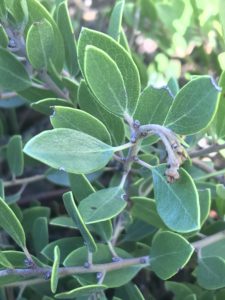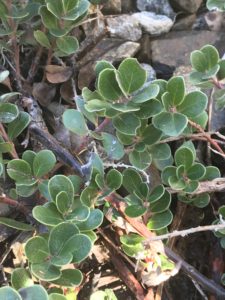
- This event has passed.
The beauty and complexity of evolution: A focus on Arctostaphylos and its relatives
January 23, 2021 at 4:00 pm - 5:00 pm UTC-8

This event is sponsored by the Friends of San Pedro Valley Park.
 January’s program brings the eminent Dr. Tom Parker to begin our 2021
January’s program brings the eminent Dr. Tom Parker to begin our 2021
life sciences series to discuss manzanitas and their relatives with an
emphasis on evolution. The talk involves several quite different processes
such as fire, drought, animals, and hybridization, among others. According
to Dr. Parker, differences among species have a great deal to do with the
climates they live in, how they respond to fire, and their interactions with
animals and not with the shape or color of the flowers.
Join us for a fascinating lecture.
The webinar will take place on Saturday, January 23rd at 4 pm. Reservations are required, so please RSVP to the Friends of SPVP email: friendsofsanpedrovalley@gmail.com
- If you are interested in participating, please respond by noon on Friday
January 22nd. - On the day of the lecture, an invitation to join the webinar will be sent about 30 minutes prior to the talk so that everyone can be ready by 4 pm.
- The lecture – with Q&A – will last one hour.
- Questions can be submitted in writing using Zoom.
- The Q&A session will take place at the end of the lecture.
About the program: Flowering plants have diversified greatly, but much of 
the differences among species have little to do with the shape or color of their flowers. This talk will focus on the Arbuoideae, a subfamily of the (Ericaceae) blueberry/rhododendron family. There are only 6 genera, madrone, summer holly, Baja birdbush, Mission manzanita, manzanita, and Arctous (alpine or mountain bearberry). Most of the taxa are in dry, seasonal habitats, but Arctous  species are alpine or arctic in its distribution.
species are alpine or arctic in its distribution.
Much of the differences among species have to do with the climates they live in, how they respond to fire, and their interactions with animals. Another dimension is that many of them are young species and not well reproductively isolated from sister species and so they can hybridize. That tends to stimulate evolution. We’ll start with all the genera for an overview, then focus on a few taxa in particular because of their odd patterns of evolution.
About the speaker: Tom Parker is Professor of Biology Emeritus at San Francisco State University. Tom is an evolutionary ecologist focused on the role of plants in ecological communities. He specializes in the dynamics of plant communities and has conducted research principally on tidal wetlands and chaparral.